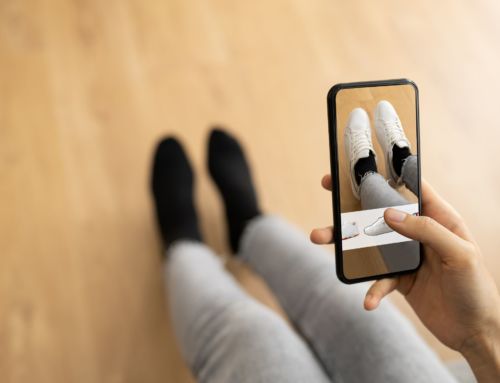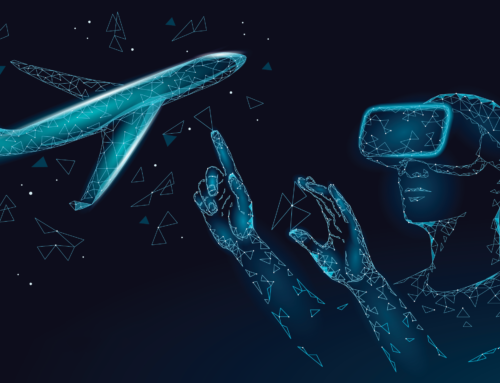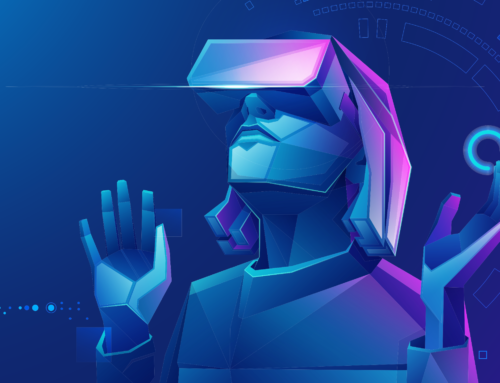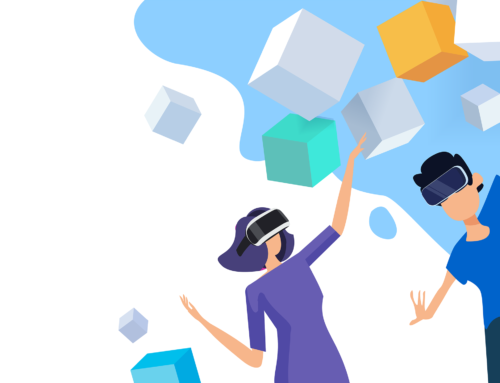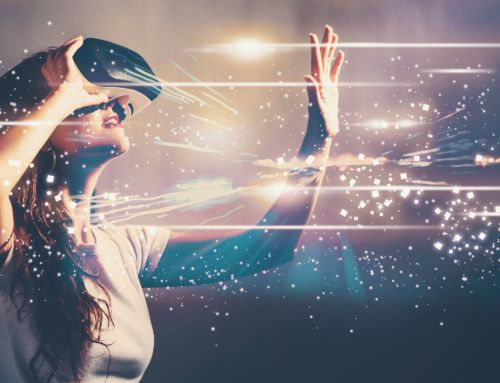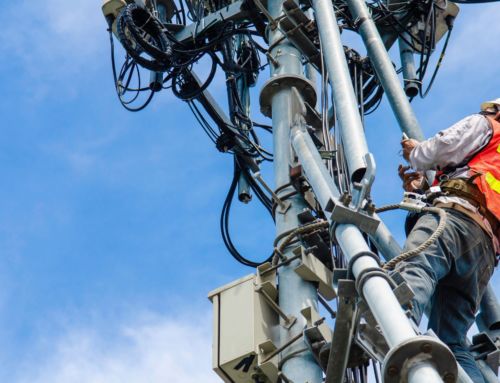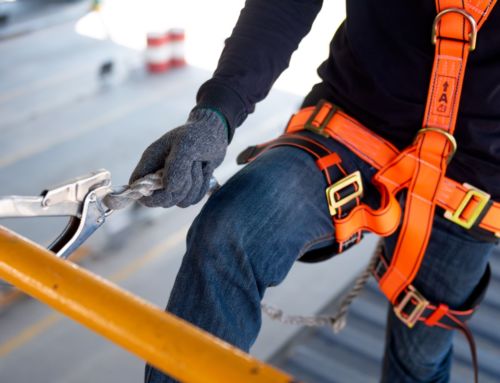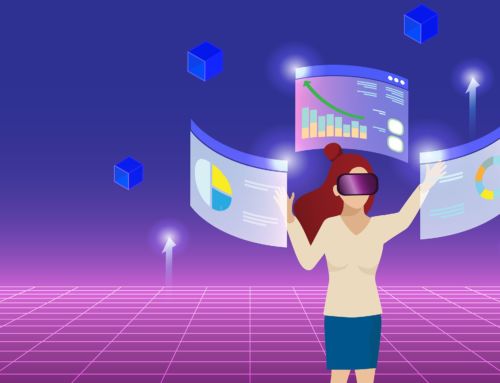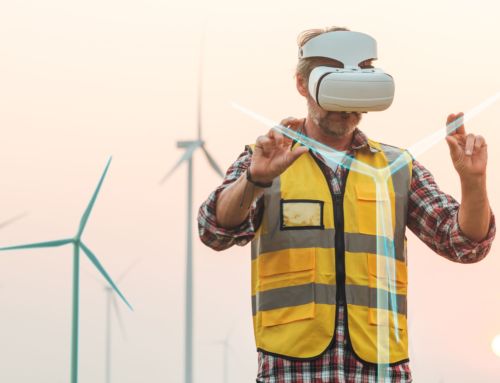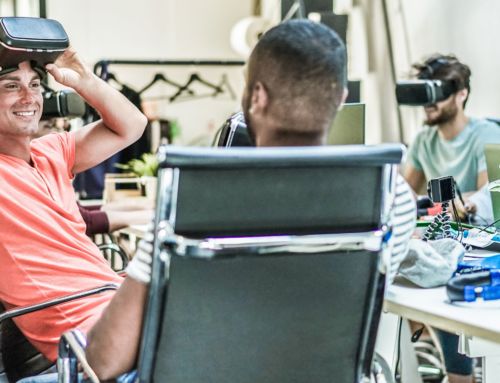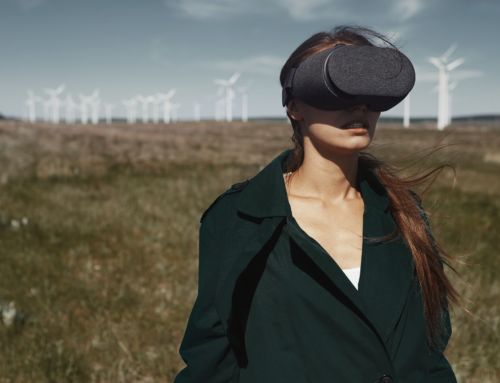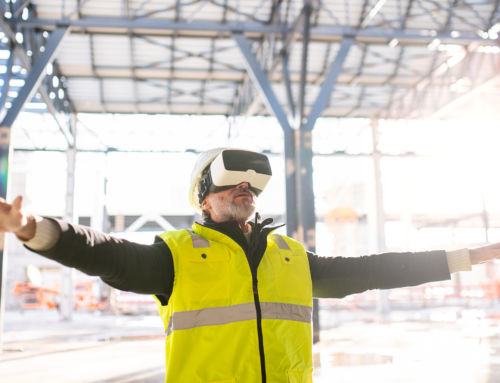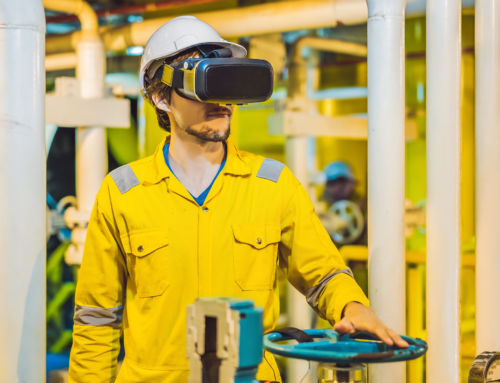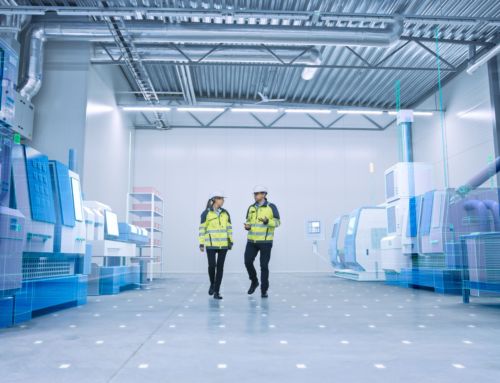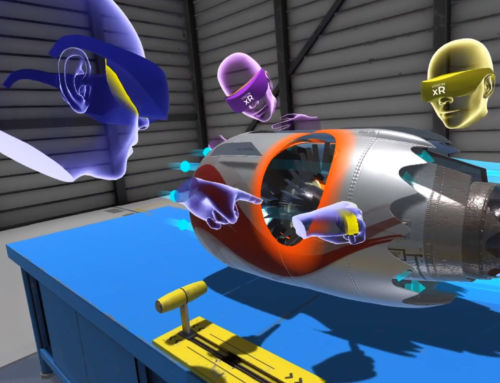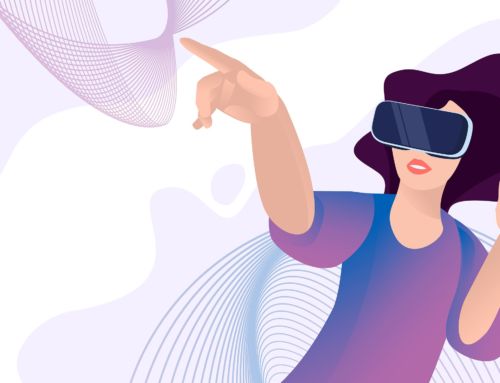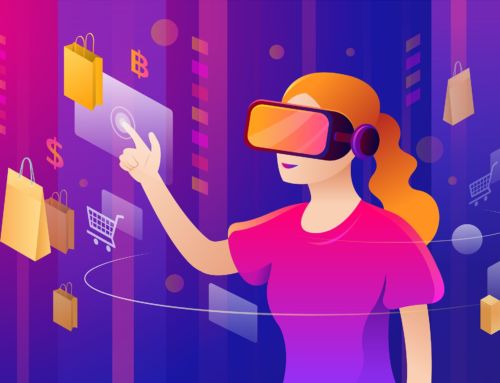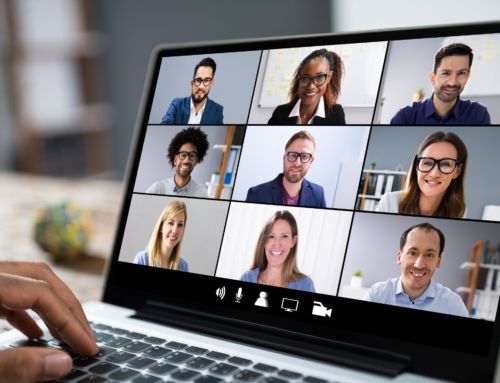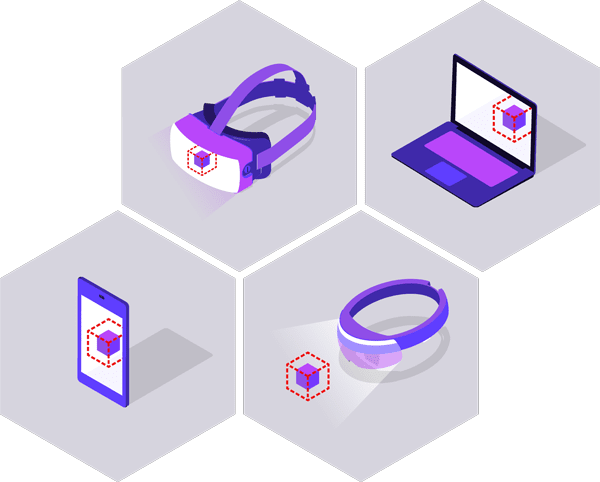Virtual, augmented and mixed reality technology has the potential to make a significant impact on the healthcare sector. From embedding into patient care, such as addressing mental health and pain management, through to training healthcare professionals to carry out their work at the highest level, immersive technologies are already making a tangible difference.

Virtual reality – a viable solution for healthcare training today
Healthcare is something that we all rely on throughout our lives. Having highly trained and proficient healthcare professionals is crucial for all our health and wellbeing needs. But for clinicians to perfect their working practices and maintain required standards, they rely on rigorous training and assessment of their skills.
Over the past few years, immersive technology has seen significant advances in both hardware and software. This means that virtual reality technology is now in a place where it can help to address the specific training needs of healthcare professionals.
Virtual reality training experiences accurately replicate real world work scenarios and allows healthcare professionals to learn in a risk-free environment. Learning experiences can be repeated and specific tasks practiced numerous times to hone skills to the highest standards. Moreover, performance can be monitored, evaluated and reviewed through the collection of key data, from tracking eye and body movement through to time taken to complete tasks and errors made.
Feel mighty real: artificial intelligence and haptics
The introduction of technologies such as haptics and artificial intelligence (AI) into VR training experiences is game changing. The addition of AI means that lifelike patients can be added to experiences, who react to the actions of the student. This means that each training experience has the potential to be different, tailored to each individual’s needs and rigorously testing their reasoning, decision making and communication skills.
Haptic technology replicates the feel of an environment. The addition of haptics is game changing for technical training in VR for intricate procedures, as it allows the student to sense the application of force and motion; crucial where the smallest error could have fatal consequences in real life situations.
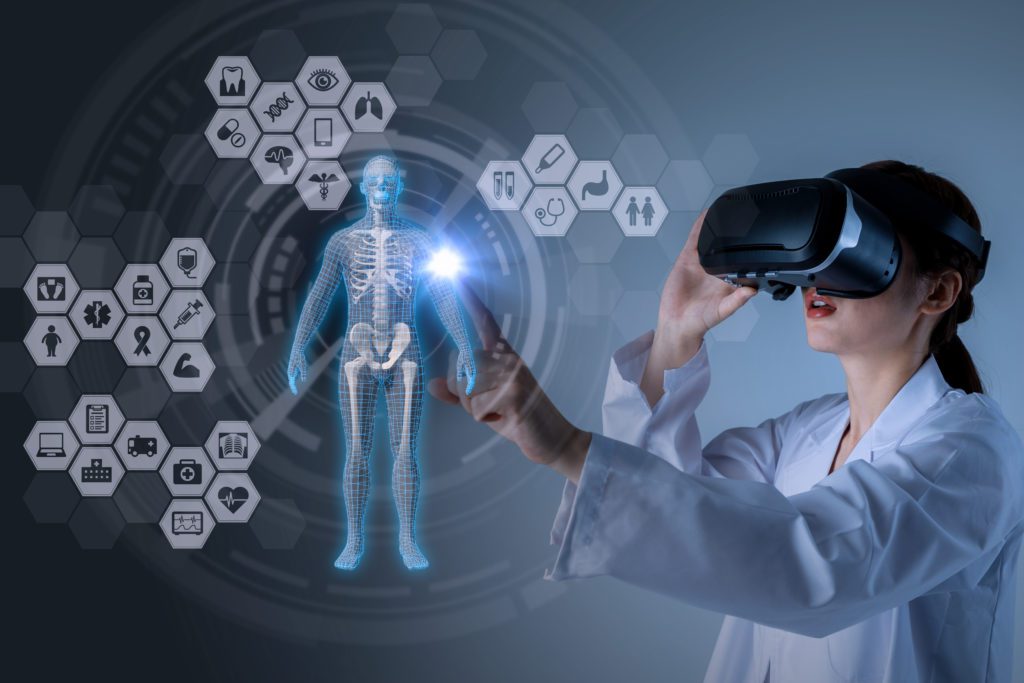
Where’s the evidence that VR training works?
In a sector driven by scientific evidence, a cautious approach to advances in technology is inevitable. For the widespread adoption of immersive technologies in healthcare training, there needs to be solid evidence that virtual training works and has a tangible impact on clinicians’ skillsets. While there is significant data available to prove the effectiveness of VR training across a variety of industries, medical focused studies are supporting the case for healthcare VR training in helping clinicians to learn faster, minimise errors and retain knowledge.
For example, researchers at the David Geffen School of Medicine at the University of California have highlighted that medical students who were given VR training for a procedure to repair a bone fracture completed it 20% faster and completed 38% more steps correctly when compared with students undertaking traditional training.
Applications for VR training in healthcare
VR Training for Surgeons
As surgical procedures evolve, in part driven by the latest cutting-edge technologies, surgeons are faced with the challenge of keeping their skills up to scratch. Indeed, in 2010, the World Health Organization highlighted how ineffective training to address the increasing complexity of medical technology, coupled and longer learning curves is the primary cause of adverse events related to new technologies. As demands on clinicians’ skillsets are constantly growing, ensuring that training and skills assessments meets the needs of healthcare teams is essential.

Virtual reality fits ideally with a surgeon’s need to build up their experience by performing procedures multiple times to reach the required level of proficiency.
VR Training for Doctors and Nurses
VR training can be applied beyond surgery to help healthcare professionals develop both technical and soft skills.
It can provide a safe but realistic environment for doctors and nurses working in A&E departments, as well as for paramedics responding to emergency calls. The VR world is a world of multiple scenarios and can help students and practitioners to develop skills to cope in a highly stressed and fast paced environment, make crucial split-second decisions and perform procedures in difficult circumstances to help save patient lives.
Being a great healthcare professional doesn’t just depend on an individual’s technical abilities; developing empathy and communication skills is also a key. Virtual reality training can help to address these skills needs in a variety of ways. Patient consultation training that combines VR with artificial intelligence allows practitioners to develop communication skills to cope with the reactions of patients in multiple scenarios. Moreover, empathy skills can be developed by being able to get an insight into conditions that patients have by experiencing some of the symptoms in a VR simulation, such as finding out what it is like to experience sight or hearing loss.
Learning in virtual reality isn’t just a possibility for the future; it’s already being used as an innovative way to train across the healthcare sector.
Improving diabetes care
“Embracing technology is at the heart of the NHS long term plan and training doctors using virtual reality is another example of modernising the NHS to help improve care for patients with diabetes.”
Dr Partha Kar, Portsmouth Hospitals NHS Trust
The NHS has started trialling virtual reality training for doctors and nurses to improve diabetes care. Led by Dr Partha Kar, of Portsmouth Hospitals NHS Trust with technology developed by Oxford Medical Simulation, the VR experience helps non-specialist clinicians to respond appropriately to potential emergency situations that could escalate quickly to become life threatening. During the training sessions, their actions in response to each scenario is recorded and assessed.
Fundamental Surgery: a surgical VR first
Fundamental Surgery platform gives surgeons the chance to undertake total hip replacement simulation training in a virtual environment. Clinicians are transported to a realistic virtual space that looks like an operating room and experience the same environment they would during real surgery. With the addition of haptic technology, they are also given a fully tactile experience that helps them to better prepare for undertaking real life operations by feeling the movement and interaction of tissue, muscle and bones students are.
Fundamental Surgery is a trailblazing VR training experience in the healthcare sector. It has become the first VR platform to receive accreditation from the Royal College of Surgeons of England, in addition to being adopted by numerous NHS organisations including St George’s Hospital in London and University College London Hospital.
Virtual reality – a training innovation to help save lives
Our healthcare sector is constantly evolving with medical breakthroughs driven by technological advances. But for these innovations to be fully realised, ensuring that healthcare practitioners have the right skills and abilities is paramount. Virtual reality can offer a safe, impactful, accessible and cost-effective way to address a myriad of skills issues, helping practitioners to work at the top of their game – and ultimately help save lives.
To find out more about how Future Visual can help your company, contact us at https://www.futurevisual.com/contact/
Virtual, augmented and mixed reality technology has the potential to make a significant impact on the healthcare sector. From embedding into patient care, such as addressing mental health and pain management, through to training healthcare professionals to carry out their work at the highest level, immersive technologies are already making a tangible difference.

Virtual reality – a viable solution for healthcare training today
Healthcare is something that we all rely on throughout our lives. Having highly trained and proficient healthcare professionals is crucial for all our health and wellbeing needs. But for clinicians to perfect their working practices and maintain required standards, they rely on rigorous training and assessment of their skills.
Over the past few years, immersive technology has seen significant advances in both hardware and software. This means that virtual reality technology is now in a place where it can help to address the specific training needs of healthcare professionals.
Virtual reality training experiences accurately replicate real world work scenarios and allows healthcare professionals to learn in a risk-free environment. Learning experiences can be repeated and specific tasks practiced numerous times to hone skills to the highest standards. Moreover, performance can be monitored, evaluated and reviewed through the collection of key data, from tracking eye and body movement through to time taken to complete tasks and errors made.
Feel mighty real: artificial intelligence and haptics
The introduction of technologies such as haptics and artificial intelligence (AI) into VR training experiences is game changing. The addition of AI means that lifelike patients can be added to experiences, who react to the actions of the student. This means that each training experience has the potential to be different, tailored to each individual’s needs and rigorously testing their reasoning, decision making and communication skills.
Haptic technology replicates the feel of an environment. The addition of haptics is game changing for technical training in VR for intricate procedures, as it allows the student to sense the application of force and motion; crucial where the smallest error could have fatal consequences in real life situations.

Where’s the evidence that VR training works?
In a sector driven by scientific evidence, a cautious approach to advances in technology is inevitable. For the widespread adoption of immersive technologies in healthcare training, there needs to be solid evidence that virtual training works and has a tangible impact on clinicians’ skillsets. While there is significant data available to prove the effectiveness of VR training across a variety of industries, medical focused studies are supporting the case for healthcare VR training in helping clinicians to learn faster, minimise errors and retain knowledge.
For example, researchers at the David Geffen School of Medicine at the University of California have highlighted that medical students who were given VR training for a procedure to repair a bone fracture completed it 20% faster and completed 38% more steps correctly when compared with students undertaking traditional training.
Applications for VR training in healthcare
VR Training for Surgeons
As surgical procedures evolve, in part driven by the latest cutting-edge technologies, surgeons are faced with the challenge of keeping their skills up to scratch. Indeed, in 2010, the World Health Organization highlighted how ineffective training to address the increasing complexity of medical technology, coupled and longer learning curves is the primary cause of adverse events related to new technologies. As demands on clinicians’ skillsets are constantly growing, ensuring that training and skills assessments meets the needs of healthcare teams is essential.

Virtual reality fits ideally with a surgeon’s need to build up their experience by performing procedures multiple times to reach the required level of proficiency.
VR Training for Doctors and Nurses
VR training can be applied beyond surgery to help healthcare professionals develop both technical and soft skills.
It can provide a safe but realistic environment for doctors and nurses working in A&E departments, as well as for paramedics responding to emergency calls. The VR world is a world of multiple scenarios and can help students and practitioners to develop skills to cope in a highly stressed and fast paced environment, make crucial split-second decisions and perform procedures in difficult circumstances to help save patient lives.
Being a great healthcare professional doesn’t just depend on an individual’s technical abilities; developing empathy and communication skills is also a key. Virtual reality training can help to address these skills needs in a variety of ways. Patient consultation training that combines VR with artificial intelligence allows practitioners to develop communication skills to cope with the reactions of patients in multiple scenarios. Moreover, empathy skills can be developed by being able to get an insight into conditions that patients have by experiencing some of the symptoms in a VR simulation, such as finding out what it is like to experience sight or hearing loss.
Learning in virtual reality isn’t just a possibility for the future; it’s already being used as an innovative way to train across the healthcare sector.
Improving diabetes care
“Embracing technology is at the heart of the NHS long term plan and training doctors using virtual reality is another example of modernising the NHS to help improve care for patients with diabetes.”
Dr Partha Kar, Portsmouth Hospitals NHS Trust
The NHS has started trialling virtual reality training for doctors and nurses to improve diabetes care. Led by Dr Partha Kar, of Portsmouth Hospitals NHS Trust with technology developed by Oxford Medical Simulation, the VR experience helps non-specialist clinicians to respond appropriately to potential emergency situations that could escalate quickly to become life threatening. During the training sessions, their actions in response to each scenario is recorded and assessed.
Fundamental Surgery: a surgical VR first
Fundamental Surgery platform gives surgeons the chance to undertake total hip replacement simulation training in a virtual environment. Clinicians are transported to a realistic virtual space that looks like an operating room and experience the same environment they would during real surgery. With the addition of haptic technology, they are also given a fully tactile experience that helps them to better prepare for undertaking real life operations by feeling the movement and interaction of tissue, muscle and bones students are.
Fundamental Surgery is a trailblazing VR training experience in the healthcare sector. It has become the first VR platform to receive accreditation from the Royal College of Surgeons of England, in addition to being adopted by numerous NHS organisations including St George’s Hospital in London and University College London Hospital.
Virtual reality – a training innovation to help save lives
Our healthcare sector is constantly evolving with medical breakthroughs driven by technological advances. But for these innovations to be fully realised, ensuring that healthcare practitioners have the right skills and abilities is paramount. Virtual reality can offer a safe, impactful, accessible and cost-effective way to address a myriad of skills issues, helping practitioners to work at the top of their game – and ultimately help save lives.
To find out more about how Future Visual can help your company, contact us at https://www.futurevisual.com/contact/





